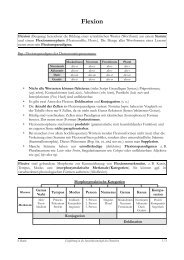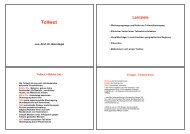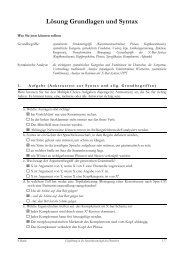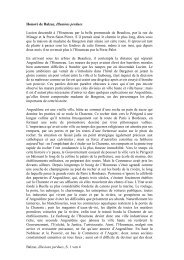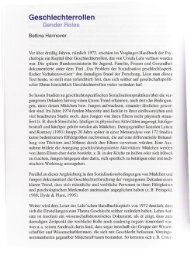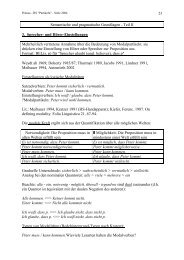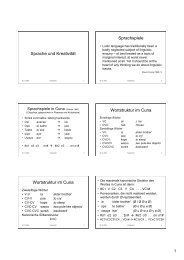R. W. B. Lewis The American Adam: Innocence ... - UK-Online
R. W. B. Lewis The American Adam: Innocence ... - UK-Online
R. W. B. Lewis The American Adam: Innocence ... - UK-Online
Create successful ePaper yourself
Turn your PDF publications into a flip-book with our unique Google optimized e-Paper software.
„It was the tragedy inherent in his innocence and newness, and it established the pattern for<br />
<strong>American</strong> fiction.“<br />
„<strong>The</strong> dangers, both to life and to letters, of the <strong>Adam</strong>ic ideal were acknowledged at once and have<br />
been repeated endlessly. <strong>The</strong> helplessness of mere innocence has been a primary theme of novelists<br />
in almost every decade, and a source of bewilderment to our political and diplomatic historians. <strong>The</strong><br />
dismissal of the past has been only too effective: America, since the age of Emerson, has been<br />
persistently a one-generation culture. Successive generations have given rise to a series of staccato<br />
intellectual and literary movements with ever slighter trajectories. <strong>The</strong> temper which despised<br />
memory not unnaturally fostered a habit of forgetfulness, and writers who even forgot that there was<br />
anything to remember have found themselves remote alike from their predecessors and their<br />
contemporaries.“<br />
Song of Myself<br />
I celebrate myself, and sing myself,<br />
And what I assume you shall assume,<br />
For every atom belonging to me as good belongs to you.<br />
I loafe and invite my soul,<br />
I lean and loafe at my ease observing a spear of summer grass.<br />
„<strong>The</strong>re, in fact, is the new <strong>Adam</strong>. If we want a profile of him, we could start with the<br />
adjectives Whitman supplies: amused, complacent, compassionating, idle, unitary; especially<br />
unitary, and certainly very easily amused; too complacent, we frequently feel, but always<br />
compassionate expressing the old divine compassion for every sparrow that falls, every<br />
criminal and prostitute and hopeless invalid, every victim of violence or misfortune. With<br />
Whitman's help we could pile up further attributes, and the exhaustive portrait of <strong>Adam</strong> would<br />
be composed of a careful gloss on each one of them: hankering, gross, mystical, nude;<br />
turbulent, fleshy, sensual, eating, drinking, and breeding; no sentimentalist, no stander above<br />
men and women; no more modest than immodest; wearing his hat as he pleases indoors and<br />
out; never skulking or ducking or deprecating; adoring himself and adoring his comrades;<br />
afoot with his vision,<br />
Moving forward then and now and forever,<br />
Gathering and showing more always and with velocity,<br />
Infinite and omnigenous.<br />
And announcing himself in language like that. For an actual illustration, we could not find anything<br />
better than the stylized daguerreotype of himself which Whitman placed as the Frontispiece of the<br />
first edition. We recognize him at once: looking with side-curved head, bending an arm on the<br />
certain rest of his hip, evidently amused, complacent, and curious; bearded, rough, probably sensual;<br />
with his hat on.





